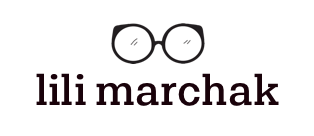A quick overview
the problem
Quantitative data revealed that many customers use Priceline’s app to purchase last-minute travel. We wanted to ideate upon this insight, so a few members of the design, hotel, and apps team were assembled to pursue several lean experiments to develop new features that catered to these customers. At the beginning of this project, some initial research and understanding was needed, so I stepped in.
methodology & process
Guerilla Interviews
The team quickly wanted to know what type of trips people were taking last-minute and why. In order to get some insights, I hit the NYC streets for an initial round of guerrilla-style interviews. We recruited roughly ~15 people in a few days telling us about their more recent last-minute hotel booking.
I learned a few things when out in the streets: 1) never go out to talk to users alone if you’re a woman, and 2) Times Square is a terrible area to recruit users. I have mixed feelings on guerrilla testing that I’m more than happy to talk about. Since our scope was so limited for this initial rapid research round, we were able to get enough viable data to get us insights.
Survey Design
The team wanted quantitative understanding on the insights we collected. We validated and confirmed our initial insights with roughly 600 participants in a 5-10 minute. I recruited 300 users from our internal database (targeting those who booked a hotel shortly before they stayed in their hotel) and another 300 through mTurk to validate typical last-minute behaviors.
Landing Page Experiment
As we pursued the interviews and survey, the team launched a dummy landing page (non-Priceline specific) that promoted an app that showcased a set of possible solutions to the problem. We pursued several different avenues for a new, exciting app catered to a last-minute customer that the team assumed people would enjoy. This landing experiment was live on Facebook and online for 2 weeks, and would be determined successful if we captured significant click-throughs and sign-ups for the potential service.
results
While the team created several different solutions during this project, there was one that had a little more merit than others. Initial research validated interest in accessing shorter, cheaper rates when people booked their hotels. Many people bought hotels in the evening after unexpected experiences, for stay-cations/late night excursions, or for a stop on a long road-trip. There was some dissatisfaction with the price, but the understanding that it was usually their fault for waiting (if it was habitual behavior) or to blame under a specific circumstance (i.e. someone’s house flooded). Most last minute travelers indicated some sort of interest in wanting a good price for their stay.
One of my passions is identifying and defining problem spaces, so I spent most of my time on the running after behaviors and insights surrounding those last-minute trips. While I did this, the landing page experiment failed. Very few customers (and non-customers) expressed interest in an app for last-minute hotel deals and proved it was the wrong solution for the problem space.
After collecting interviews and survey answers, the team regrouped and determined interest in pursuing more work on accessing cheaper rates later in the evening. I could confirm customers exhibited such behavior and interest in spending less for their stay, so it seemed like a natural avenue to explore. This research aided us in regrouping and diverting our strategy.
impact
The team continued to pursue this idea and launched the feature on Priceline’s existing app. It performed incredibly well and we’re continuing to pursue and enhance the concept. Had the team not pursued or listened to the qualitative research collected, the feature would’ve been delayed or forgotten for more pressing, immediate product concerns. It proved validation in a lean learning process and continues to be a mini-case study in investing in early exploratory research.
